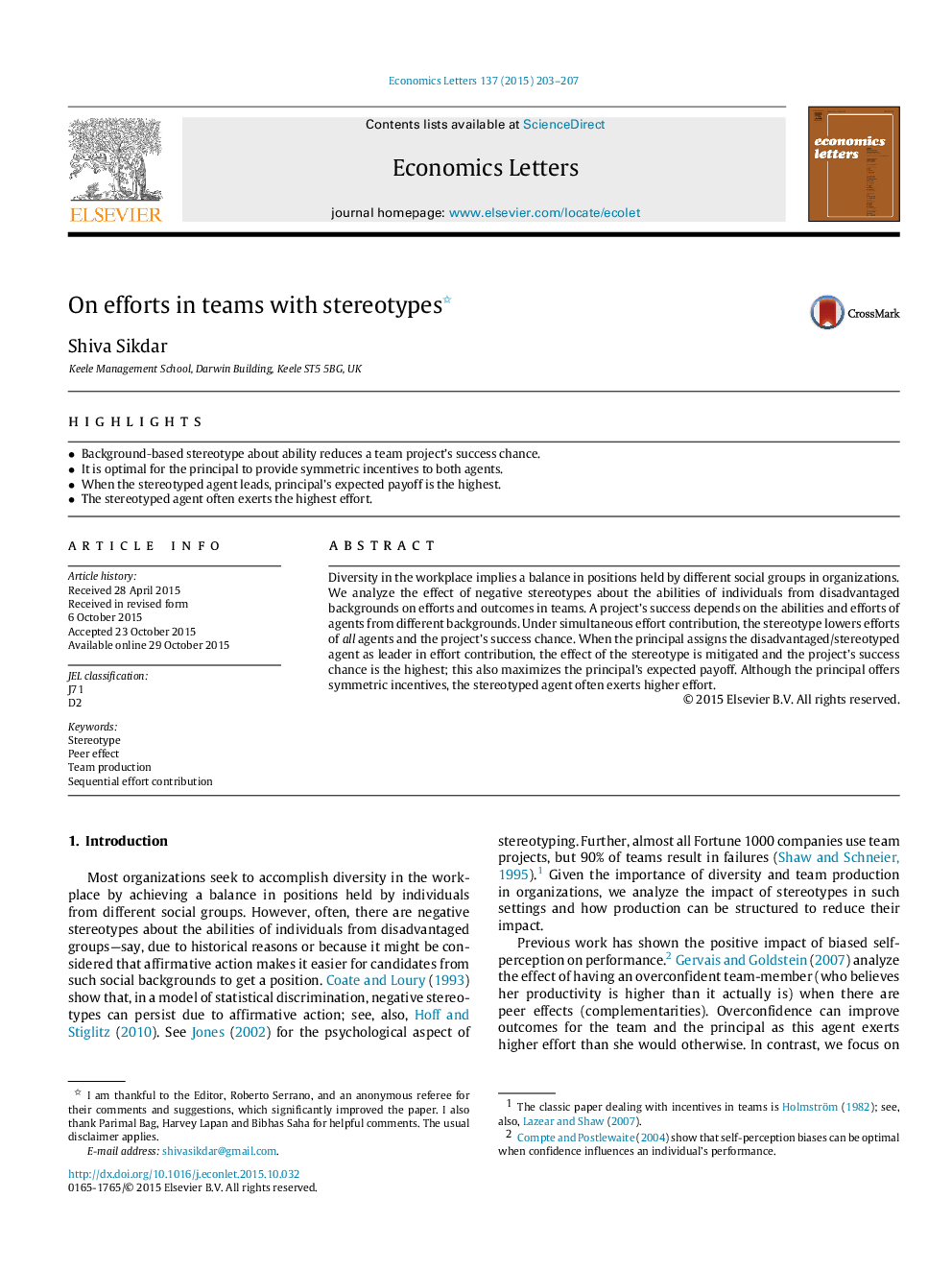| Article ID | Journal | Published Year | Pages | File Type |
|---|---|---|---|---|
| 5058690 | Economics Letters | 2015 | 5 Pages |
â¢Background-based stereotype about ability reduces a team project's success chance.â¢It is optimal for the principal to provide symmetric incentives to both agents.â¢When the stereotyped agent leads, principal's expected payoff is the highest.â¢The stereotyped agent often exerts the highest effort.
Diversity in the workplace implies a balance in positions held by different social groups in organizations. We analyze the effect of negative stereotypes about the abilities of individuals from disadvantaged backgrounds on efforts and outcomes in teams. A project's success depends on the abilities and efforts of agents from different backgrounds. Under simultaneous effort contribution, the stereotype lowers efforts of all agents and the project's success chance. When the principal assigns the disadvantaged/stereotyped agent as leader in effort contribution, the effect of the stereotype is mitigated and the project's success chance is the highest; this also maximizes the principal's expected payoff. Although the principal offers symmetric incentives, the stereotyped agent often exerts higher effort.
